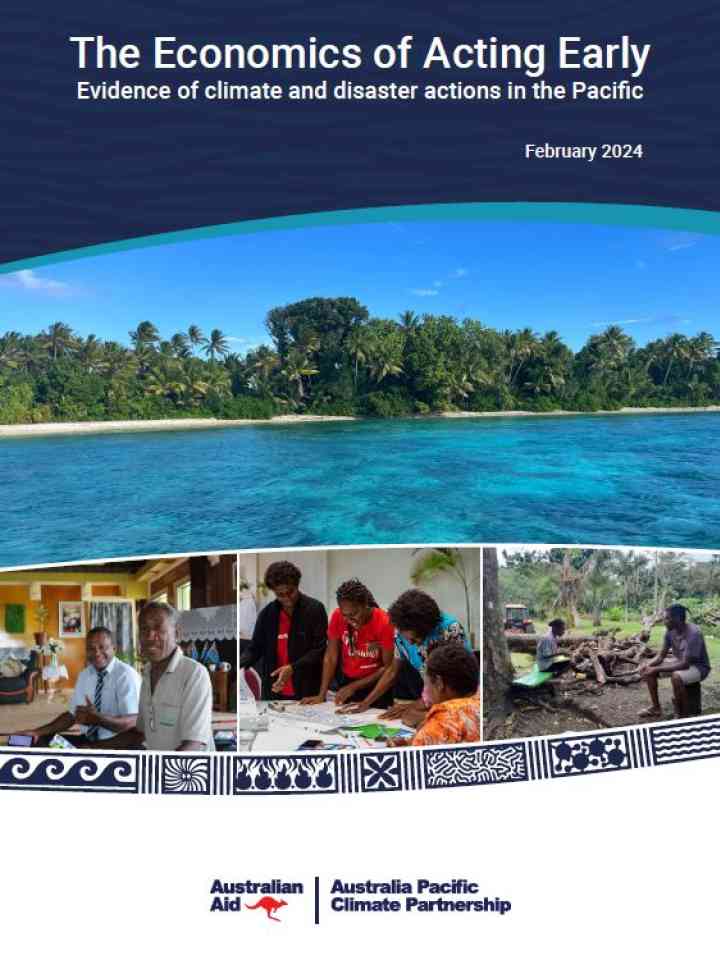The economics of acting early: Evidence of climate and disaster actions in the Pacific
The Australia Pacific Climate Partnership commissioned the Economics of Acting Early research to generate evidence on the value of early actions in reducing the impact of climate change and disaster events in the Pacific. It is intended to help create incentives for policymakers and other decision-makers to act before a disaster occurs.
The three case studies selected were the early actions by the Palau Red Cross Society, early warning and early action messaging through Women’s Weather Watch by ActionAid Vanuatu, and the parametric insurance for social protection by the World Food Programme (WFP) and the United Nations Capital Development Fund (UNCDF) in Fiji:
- The Palau case study is a great example of localised early actions, symbolising an anticipatory approach that is practical and relevant to the context of a Pacific small island country.
- The Vanuatu case study confirmed that after receiving early warning messages, communities take preventative actions to protect their assets and minimise potential losses.
- The Fiji case study estimated the potential benefit of early insurance payouts or cash transfers prior to a hazard event, as it showed an increased purchasing power benefit of 37 to 41 per cent for pre-hazard insurance payouts compared to post-hazard payouts.
Explore further
